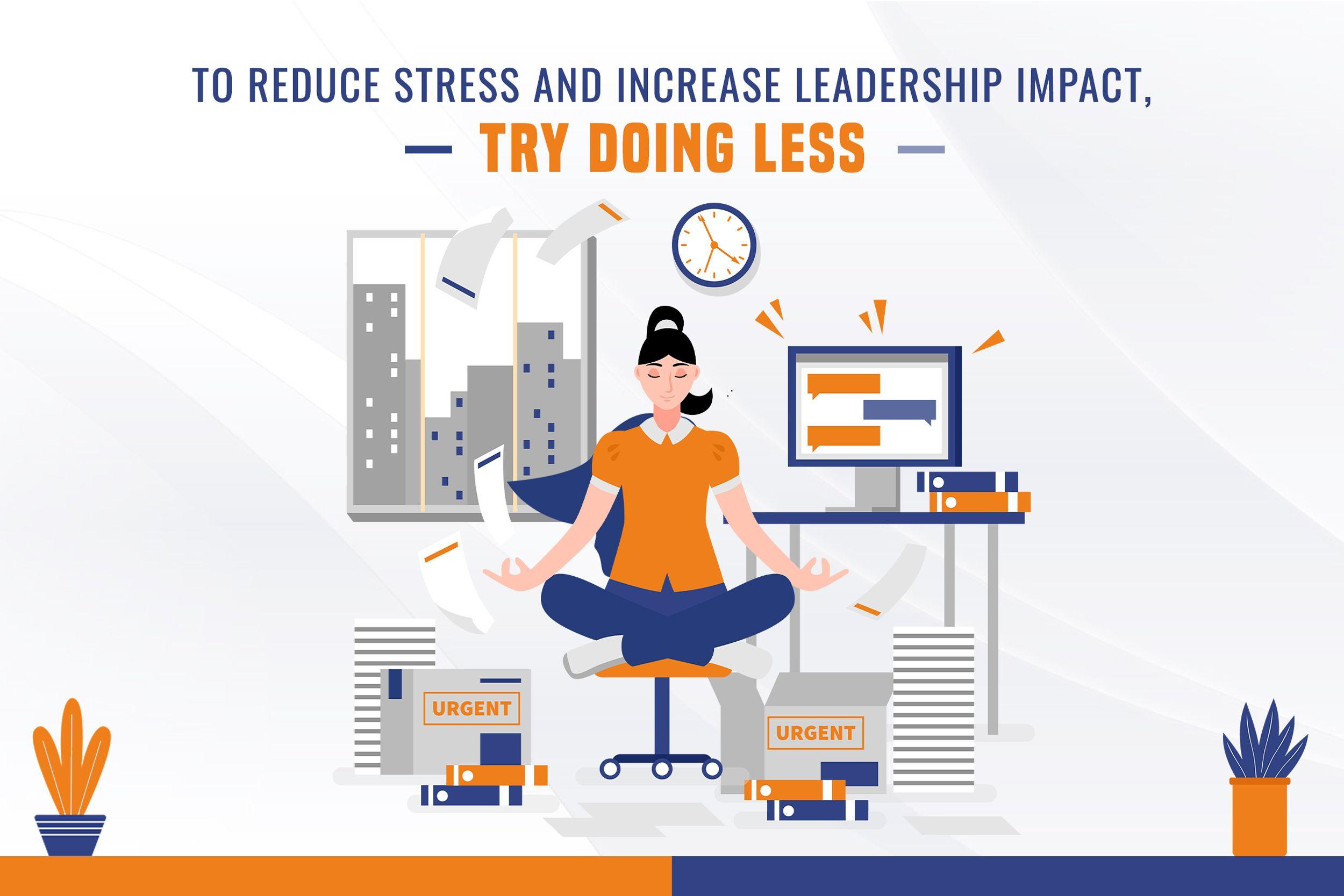
To Reduce Stress And Increase Leadership Impact, Try Doing Less
In the fast-paced world of modern leadership, the pressure to excel and accomplish more can often lead to burnout and diminished effectiveness. The prevailing notion that more is better has driven leaders to stretch themselves thin, juggling numerous tasks and responsibilities. However, a counterintuitive approach suggests that by doing less, leaders can actually reduce stress and enhance their leadership impact. This article explores the concept of minimalism in leadership, highlighting the benefits of simplifying tasks, focusing on essential responsibilities, and finding a balance that promotes both personal well-being and effective leadership.
How To Reduce Stress And Enhance Leadership Impact By Doing Less
1. The Myth of Constant Busyness:
In the contemporary hyper-connected society, busyness is frequently upheld as a mark of prestige. Paradoxically, the ceaseless rush and commotion that accompany this lifestyle can be counterproductive, elevating stress while eroding overall efficiency. Astute leaders recognize that the mere state of being busy doesn't automatically translate to effectiveness. They grasp the importance of dismantling the myth of perpetual busyness, leading them to question their commitments and obligations. Through this introspection, leaders create an avenue to integrate activities that genuinely contribute to desired outcomes. By reframing their approach from unrelenting busyness to purposeful action, leaders forge a path to meaningful achievements, thereby exemplifying the essence of impactful Leadership Training and Development in a world often dominated by continuous motion.
2. Prioritizing Essential Tasks:
In the contemporary hyper-connected society, busyness is frequently upheld as a mark of prestige. Paradoxically, the ceaseless rush and commotion that accompany this lifestyle can be counterproductive, elevating stress while eroding overall efficiency. Astute leaders recognize that the mere state of being busy doesn't automatically translate to effectiveness. They grasp the importance of dismantling the myth of perpetual busyness, leading them to question their commitments and obligations. Through this introspection, leaders create an avenue to integrate activities that genuinely contribute to desired outcomes. By reframing their approach from unrelenting busyness to purposeful action, leaders forge a path to meaningful achievements, thereby exemplifying the essence of impactful leadership in a world often dominated by continuous motion.
3. Delegating and Empowering:
Leaders who shoulder the weight of every task single-handedly run the perilous risk of becoming constraining points within their organizations. Recognizing this, effective leaders embrace the power of delegation and empowerment. This strategic approach not only alleviates the leader's own load but also nurtures the growth and advancement of their team. By entrusting competent individuals with responsibilities, and upskilling them more with relevant Leadership Skills Development Training, leaders tap into their team's inherent strengths, fostering an atmosphere of collaboration where every individual's input is prized. This shift from a solitary endeavor to a collective effort not only streamlines efficiency but also cultivates an environment where innovation thrives. Ultimately, by relinquishing control and facilitating empowerment, leaders not only enhance their own capabilities but also pave the way for the holistic development of their team and organization.
4. Embracing Mindfulness and Reflection:
The perpetual state of motion often leaves scant space for introspection and mindful presence. Proficient leaders, however, acknowledge the significance of creating moments for reflection. They comprehend the value of pausing, evaluating their actions, and gleaning insights from their encounters. By adopting mindfulness practices, leaders equip themselves with the tools to navigate stress adeptly, elevate their decision-making acumen, and foster a profound sense of lucidity that resonates throughout their leadership journey and promotes Leadership Training and Development. This deliberate commitment to mindfulness not only enriches personal well-being but also cascades into their leadership approach, generating a more resonant and influential connection with their teams. Ultimately, by integrating mindfulness and reflection into their daily routine, leaders forge a path to not just efficient management but also enduring and transformative leadership.
5. Nurturing Work-Life Balance:
Leadership's reach transcends the boundaries of the workplace, permeating every facet of existence. Establishing harmonious work-life equilibrium stands pivotal for continuous leadership efficacy. By valuing their own well-being, leaders not only enhance their personal vitality but also broadcast a positive model for their teams to emulate. This exemplifies a culture that esteems the holistic health and contentment of every individual within the organization by making good Leadership and Management Training Courses accessible for employees. A leader's commitment to striking this balance manifests as a beacon of inspiration, fostering an environment where productivity is aligned with personal fulfillment. This, in turn, propels teams toward sustained achievement, rooted not only in professional success but also in the enrichment of lives as a whole.
Final Words
In the pursuit of becoming exceptional leaders, individuals often fall into the trap of overextending themselves. However, true leadership impact doesn't arise from the sheer volume of activity, but rather from strategic focus and purposeful action. By challenging the prevailing notion of constant busyness, embracing prioritization, delegating effectively, practicing mindfulness, and nurturing work-life balance, leaders can reduce stress and enhance their ability to guide their teams to success. As leaders learn to do less and do it well, they discover that their influence and impact reach new heights, ultimately creating a more fulfilling and sustainable leadership journey.
